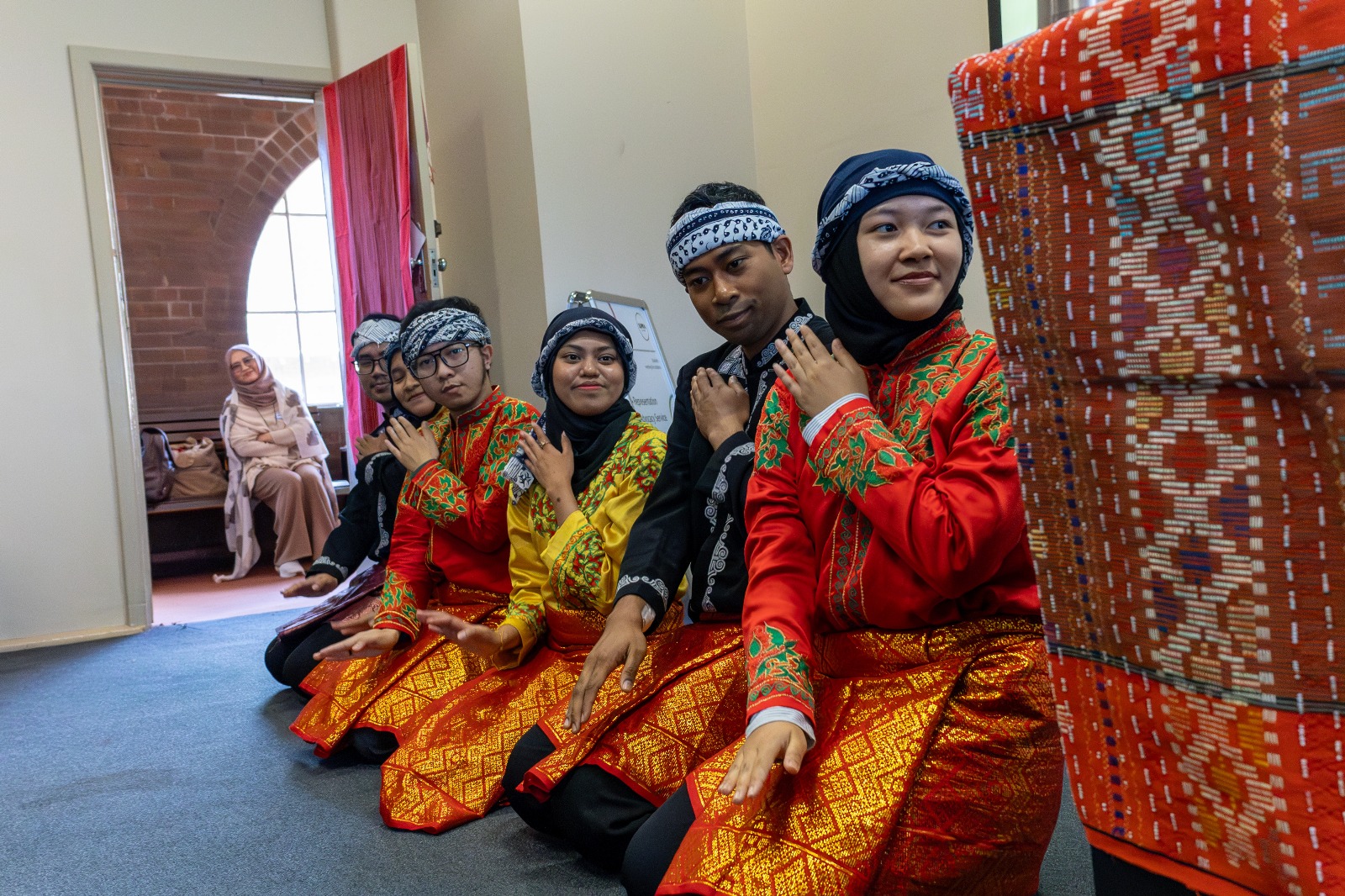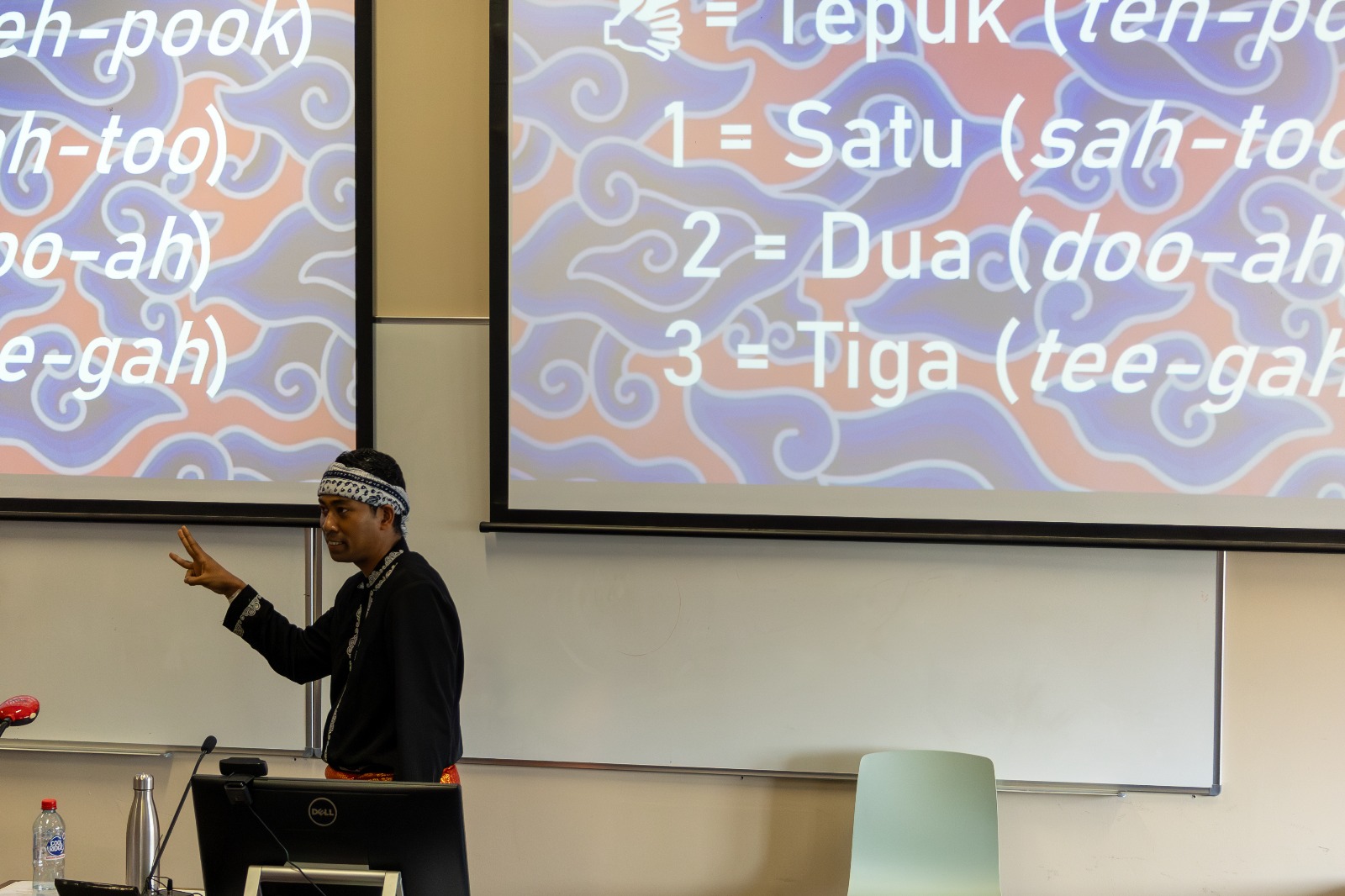
24 November 2025
Join Our Lecture on ‘Seeing, Supporting and Empowering: Inclusive Education for Neurodivergent Learners’
How can schools create learning environments where every student, especially neurodivergent learners... Read more
The Australia Awards are prestigious, transformational scholarships and short courses offered to emerging leaders for study, research and professional development in Australia
.jpeg)
07 July 2025
 Introducing Indonesian Culture Through Indovibes with Adhi and Parama
Introducing Indonesian Culture Through Indovibes with Adhi and Parama
Realising the many benefits that flow from sharing their rich culture, two Australia Awards scholars have hosted an event sharing Indonesian food, language, music, and dance with the community beyond their classrooms.
Adhi Rachman Prana and Aditya Parama Setiaboedi, both students at the University of Sydney, organised Indovibes: Sambung Rasa in May 2025. The two-hour lunchtime event attracted around 80 members of the public.
Both scholars had been involved in the Indonesian Language Learning Ambassadors (ILLA) program, which involved presenting Indonesian culture in high schools. They wanted to give more people the opportunity to engage with the culture through interactive experiences in language, dance, music, and food.
Culture Comes Alive Through Food, Language and Dance
‘When it came time to teach, many of my (ILLA) program mates were really well prepared,’ said Adhi, who is pursuing a PhD in Medicine and Health.
‘For example, our friend who is pursuing a degree in architecture tried to create models of traditional Indonesian houses as learning material in class — but in that class, there were only three students. We believe that this type of content should reach more people beyond the students in our classrooms.’
Meanwhile, in the previous semester, Parama had been involved in a cultural event which was a successful collaboration between the Australia Awards Scholarships and the Indonesia Endowment Fund for Education (LPDP).
At Indovibes, participants were treated to Indonesian dishes such as nasi goreng (fried rice) and authentic snacks, and also educated about the ingredients and the history of the dishes.
Next, an introduction to the Indonesian language covered introductions, greetings and basic counting through a role play presentation.
‘We were assisted by volunteers, who gave examples and helped with corrections,’ said Parama, who is majoring in Masters in Commerce.
To close the event, participants had fun learning the basic steps of the Ratoh Jaroe, a traditional Acehnese dance. The SUPRA (Sydney University Postgraduate Representative Association) provided financial support of $1,000 to Indovibes.

Living as Cultural Ambassadors Abroad
As scholars studying abroad, both Adhi and Parama consider themselves ambassadors for Indonesian culture, which is well known in Australia due to its proximity to Indonesia.
‘I always have a principle that wherever I am, I have to be a good representative of Indonesia, particularly related to culture and so on,’ said Adhi.
While in Australia, Adhi said he had met many young Australians with a good grasp of the Indonesian language. He had also met dancers from Suara Dance, who are Australian with Indonesian heritage, and spread awareness of Indonesian cultures.
‘Interestingly, even though they live here, they are better at various traditional dances from all over Indonesia,’ Adhi added.
Parama agreed that by truly getting to know each other's cultures, a sense of appreciation and respect would grow. He tried to put this into practice every day. For example, in class, he raised awareness of Indonesian contexts and case studies to share this knowledge with others.
‘As young people, our role is currently important in this cultural exchange,’ he said.
%20b.jpg)

Learning Through the ILLA Program
The ILLA program offers Australian Government-funded scholars from Indonesia the chance to be involved in Australian educational institutions and gain firsthand experience of Australian culture, community, and pedagogical methods. The program also allows the language ambassadors to share their expertise and knowledge of the Indonesian language, culture, and customs, while cultivating connections within the local Australian community.
Adhi noted that the ILLA program was drawing interest from Indonesian scholarship recipients outside of the Australia Awards Scholarships who were eager to participate.
‘Through ILLA, I learned a lot about intercultural communication, and how to enter a culture but still be respectful,’ Adhi reflected. ‘For example, as Indonesians, we have a mindset that we must be friendly or able to chat with foreigners. Here, it turns out that it is not like that; personal space is very important for Australians. There are indeed boundaries.’
Moreover, Parama found the program also broadened his knowledge of Indonesia. While preparing material for a presentation about Toraja and Lake Toba, he learned more about the local traditions and customs.
.jpeg)
Hopes for the Future of Cultural Exchange
In the future, Adhi hopes ILLA volunteers will be able to present material that is more closely related to the students’ subjects. Adhi has presented on human rights issues, regional autonomy, and experiences of regional planning and budgeting in relation to his role at the National Development Planning Agency (Bappenas). Occasionally, he introduces regional languages and explains that Indonesia has various peoples and languages.
Parama looks forward to more schools getting involved with ILLA and hopes for increased collaboration across communities to promote Indonesian culture and language.
‘This is the responsibility of the youth, particularly those residing away from home,’ he said.
Share this news on:
 Related News
Related NewsThis website uses cookies to improve your website experience. We may also use cookies to analyse website data so that we can improve our online services. To find out more visit our privacy policy.
